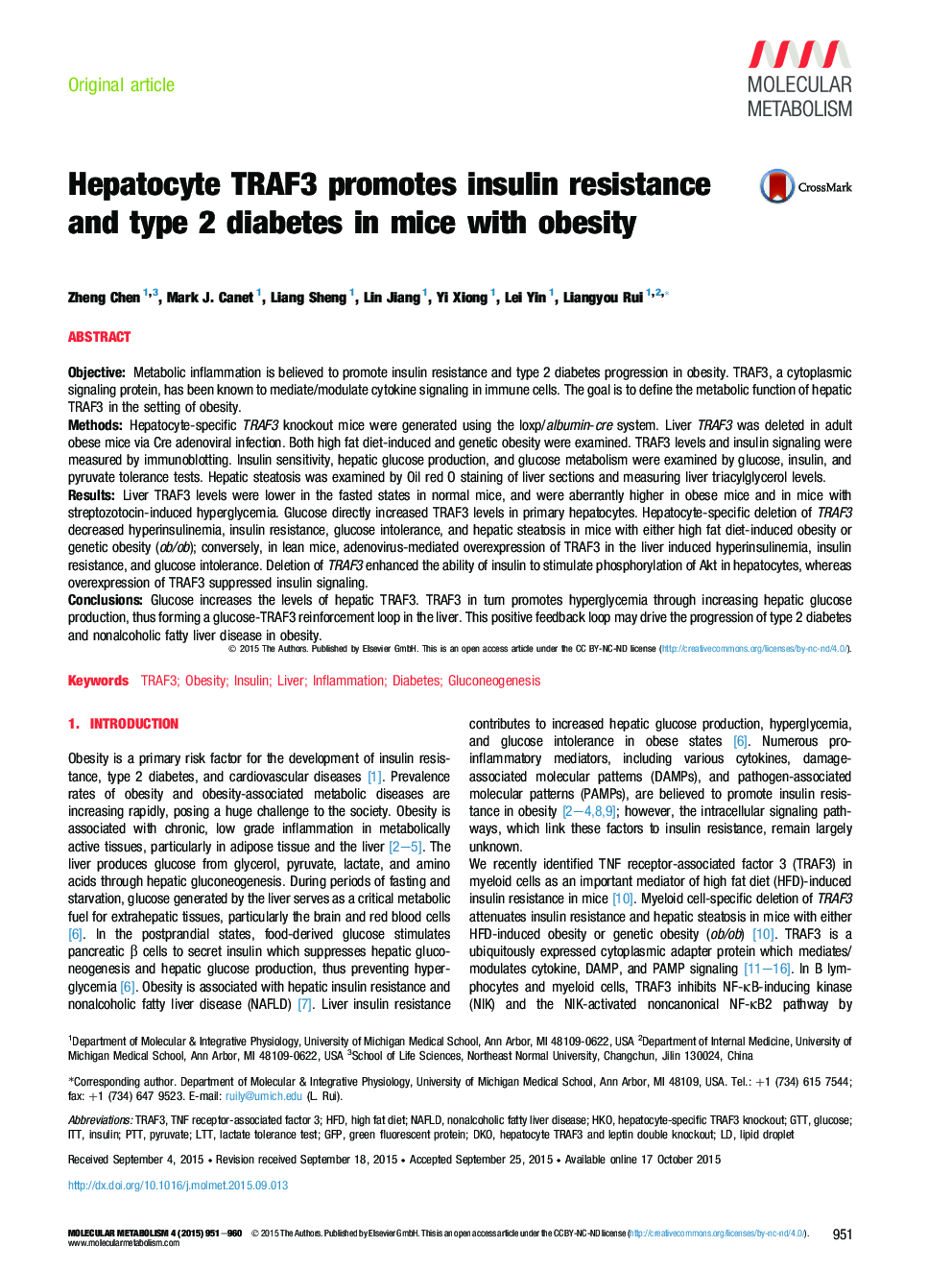| کد مقاله | کد نشریه | سال انتشار | مقاله انگلیسی | نسخه تمام متن |
|---|---|---|---|---|
| 3001518 | 1180646 | 2015 | 10 صفحه PDF | دانلود رایگان |

• Glucose increases TRAF3 levels in hepatocytes.
• Liver TRAF3 levels are aberrantly higher in obese mice.
• Deletion of hepatic TRAF3 attenuates insulin resistance, glucose intolerance, and NAFLD in obese mice.
• Liver-specific overexpression of TRAF3 induces insulin resistance and glucose intolerance in lean mice.
ObjectiveMetabolic inflammation is believed to promote insulin resistance and type 2 diabetes progression in obesity. TRAF3, a cytoplasmic signaling protein, has been known to mediate/modulate cytokine signaling in immune cells. The goal is to define the metabolic function of hepatic TRAF3 in the setting of obesity.MethodsHepatocyte-specific TRAF3 knockout mice were generated using the loxp/albumin-cre system. Liver TRAF3 was deleted in adult obese mice via Cre adenoviral infection. Both high fat diet-induced and genetic obesity were examined. TRAF3 levels and insulin signaling were measured by immunoblotting. Insulin sensitivity, hepatic glucose production, and glucose metabolism were examined by glucose, insulin, and pyruvate tolerance tests. Hepatic steatosis was examined by Oil red O staining of liver sections and measuring liver triacylglycerol levels.ResultsLiver TRAF3 levels were lower in the fasted states in normal mice, and were aberrantly higher in obese mice and in mice with streptozotocin-induced hyperglycemia. Glucose directly increased TRAF3 levels in primary hepatocytes. Hepatocyte-specific deletion of TRAF3 decreased hyperinsulinemia, insulin resistance, glucose intolerance, and hepatic steatosis in mice with either high fat diet-induced obesity or genetic obesity (ob/ob); conversely, in lean mice, adenovirus-mediated overexpression of TRAF3 in the liver induced hyperinsulinemia, insulin resistance, and glucose intolerance. Deletion of TRAF3 enhanced the ability of insulin to stimulate phosphorylation of Akt in hepatocytes, whereas overexpression of TRAF3 suppressed insulin signaling.ConclusionsGlucose increases the levels of hepatic TRAF3. TRAF3 in turn promotes hyperglycemia through increasing hepatic glucose production, thus forming a glucose-TRAF3 reinforcement loop in the liver. This positive feedback loop may drive the progression of type 2 diabetes and nonalcoholic fatty liver disease in obesity.
Journal: Molecular Metabolism - Volume 4, Issue 12, December 2015, Pages 951–960